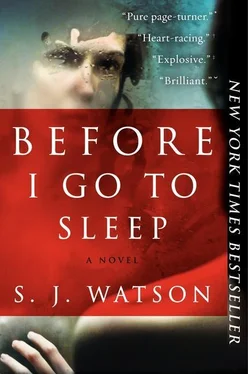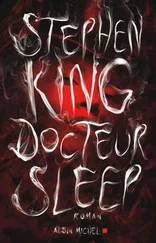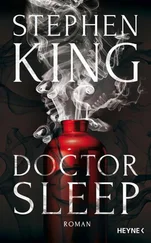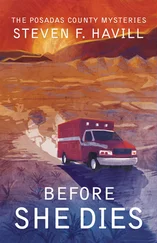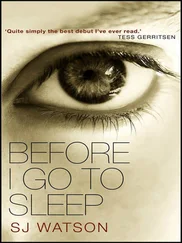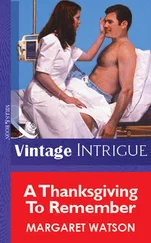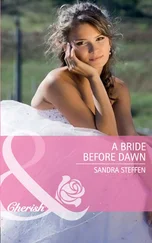“Who?” I said. “Who said?” He was silent. “The doctors?”
He looked up at me. He was crying, his eyes circled with red.
“Yes,” he said. “Yes. The doctors. They said it was for the best. It was the only way…” He wiped away a tear. “I did as they told me. I wish I hadn’t. I wish I’d fought for you. I was weak and stupid.” His voice softened to a whisper. “I stopped seeing you, yes,” he said, “but for your own sake. Even though it nearly killed me, I did it for you, Christine. You have to believe me. For you, and our son. But I never divorced you. Not really. Not here.” He leaned over and took my hand, pressing it to his shirt. “Here, we’ve always been married. We’ve always been together.” I felt warm cotton, damp with sweat. The quick beat of his heart. Love.
I have been so foolish, I thought. I have allowed myself to believe he did these things to hurt me, when really he tells me he has done them out of love. I should not condemn him. Instead I should try to understand.
“I forgive you,” I said.
Today, when I woke up, I opened my eyes and saw a man sitting on a chair in the room in which I found myself. He was sitting perfectly still. Watching me. Waiting.
I did not panic. I did not know who he was, but I did not panic. Some part of me knew that everything was all right. That he had a right to be there.
“Who are you?” I said. “How did I get here?” He told me. I felt no horror, no disbelief. I understood. I went to the bathroom and approached my reflection as I might a long-forgotten relative, or the ghost of my mother. Cautious. Curious. I dressed, getting used to my body’s new dimensions and unexpected behaviors, and then ate breakfast, dimly aware that, once, there might have been three places at the table. I kissed my husband good-bye and it did not feel wrong to do so, then, without knowing why, I opened the shoebox in the closet and found this journal. I knew straight away what it was. I had been looking for it.
The truth of my situation now sits nearer the surface. It is possible that one day I will wake up and know it already. Things will begin to make sense. Even then, I know, I will never be normal. My history is incomplete. Years have vanished, without trace. There are things about myself, my past, that no one can tell me. Not Dr. Nash—who knows me only through what I have told him, what he has read in my journal, and what is written in my file—and not Ben, either. Things that happened before I met him. Things that happened after but that I chose not to share. Secrets.
But there is one person who might know. One person who might tell me the rest of the truth. Who I had been seeing in Brighton. The real reason my best friend vanished from my life.
I have read this journal. I know that tomorrow I will meet Claire.
I am writing this at home. The place I finally understand as mine, somewhere I belong. I have read this journal through, and I have seen Claire, and between them they have told me all I need to know. Claire has promised me that she is back in my life now and will not leave again. In front of me is a tatty envelope with my name on it. An artifact. One that completes me. At last my past makes sense.
Soon, my husband will be home, and I am looking forward to seeing him. I love him. I know that now.
I will get this story down and then, together, we will be able to make everything better.
It was a bright day as I got off the bus. The light was suffused with the blue coolness of winter, the ground was hard. Claire had told me she would wait at the top of the hill, by the main steps up to the palace , and so I folded the piece of paper on which I had written her directions and began to climb the gentle incline as it arced around the park. It took longer than I expected, and, still unused to my body’s limitations, I had to rest as I neared the top. I must have been fit once, I thought. Or fitter than this, anyway. I wondered if I ought to get some exercise.
The park opened out to an expanse of mowed grass, crisscrossed with tarmac, dotted with garbage pails and women with strollers. I realized I was nervous. I did not know what to expect. How could I? In the images I had of Claire, she was wearing a lot of black. Jeans, T-shirts. I saw her in heavy boots and a trench coat. Or else she was wearing a long skirt, tie-dyed, made of some material that I suppose would be described as floaty . I could imagine neither vision representing her now—not at the age we have become—but had no idea what might have taken their place.
I looked at my watch. I was early. Without thinking, I told myself that Claire is always late, then instantly wondered how I knew, what residue of memory had reminded me. There is so much, I thought, just under the surface. So many memories, darting like silvery minnows in a shallow stream. I decided to wait on one of the benches.
Long shadows extended themselves lazily across the grass. Over the trees, rows of houses stretched away from me, packed claustrophobically close. With a start, I realized that one of the houses I could see was the one in which I now lived, looking indistinguishable from the others.
I imagined lighting a cigarette and inhaling an anxious lungful, tried to resist the temptation to stand and pace. I felt nervous, ridiculously so. Yet there was no reason. Claire had been my friend. My best friend. There was nothing to worry about. I was safe.
Paint was flaking off the bench and I picked at it, revealing more of the damp wood beneath. Someone had used the same method to scratch two sets of initials next to where I sat, then surrounded them with a heart and added the date. I closed my eyes. Will I ever get used to the shock of seeing evidence of the year in which I am living? I breathed in: damp grass, the tang of hot dogs, gasoline.
A shadow fell across my face, and I opened my eyes. A woman stood over me. Tall, with a shock of ginger hair, she was wearing trousers and a sheepskin jacket. A little boy held her hand, a plastic soccer ball in the crook of his other arm. “Sorry,” I said, and shuffled along the bench to allow room for them both to sit beside me, but as I did, the woman smiled.
“Chrissy!” she said. The voice was Claire’s. Unmistakably so. “Chrissy, darling! It’s me.” I looked from the child to her face. It was furrowed where once it must have been smooth, her eyes had a downturn to them that was absent from my mental image, but it was her . There was no doubt. “Jesus,” she said. “I’ve been so worried about you.” She pushed the child toward me. “This is Toby.”
The boy looked at me. “Go on,” said Claire. “Say hello.” For a moment, I thought she was talking to me, but then he took a step forward. I smiled. My only thought was, Is this Adam? even though I knew it could not be.
“Hello,” I said. Toby shuffled his feet and murmured something I didn’t catch, then turned to Claire and said, “Can I go and play now?”
“Don’t go out of sight, though. Yes?” She stroked his hair and he ran over to the park.
I stood up and turned to face her. I did not know if I would have preferred to turn and run myself, so vast was the chasm between us, but then she held out her arms. “Chrissy, darling,” she said, the plastic bracelets that hung from her wrists clattering into each other. “I’ve missed you. I’ve missed you so fucking much.” The weight that had been pressing down on me somersaulted, lifted, and vanished, and I fell, sobbing, into her arms.
For the briefest of moments, I felt as if I knew everything about her, and everything about myself, too. It was as if the emptiness, the void that sat at the center of my soul, had been lit with light brighter than the sun. A history—my history—flashed in front of me, but too quickly for me to do anything but snatch at it. “I remember you,” I said. “I remember you,” and then it was gone and the darkness swept in once more.
Читать дальше
